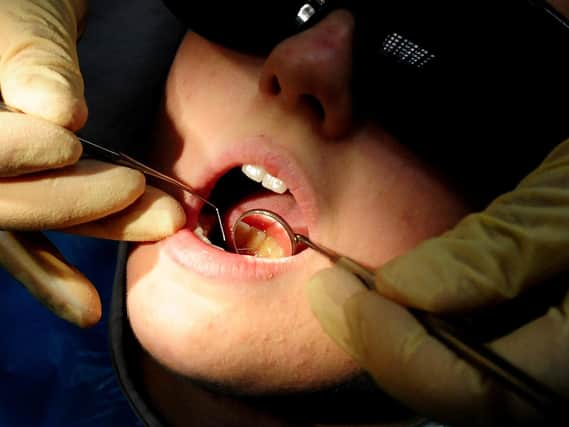Call for action amid rising tooth decay in Lancashire's youngsters


Andrea Kay, chair of the children’s scrutiny committee on Lancashire County Council, made the call after figures revealed that the county’s youngsters have a higher rate of tooth decay than the average for the rest of England.
One in three 5-year-olds in Lancashire has at least one decayed, filled or missing tooth - compared to one in four nationally.


Advertisement
Hide AdAdvertisement
Hide Ad“If you’re a dentist, you should be out there promoting healthy gums, healthy teeth and a healthy smile,” County Cllr Kay said.
“You’ve got plenty of staff in training, [so] get them out there into the community.”
The meeting heard that Lancashire County Council does not employ any dedicated school dental nurses and is instead taking a “whole system approach” to tackle wider health needs.
Members were told that the roots of tooth decay amongst children can soon spread to cause other health and social problems.
Advertisement
Hide AdAdvertisement
Hide AdSenior public health practitioner at county hall, Karen Gosling, said: “The consequence of [decay] is that a child may not have been to sleep at night because of toothache. Then they may miss school - and that will impact on their attainment and wellbeing.
“Children then sometimes have to go into hospital to have dental extractions, for [the sake of] something as simple as oral health improvement,” Ms Gosling added.
Statistics show that dental problems were the most common cause of hospital admissions amongst children aged between five and nine during 2013-14.
Former council leader, Jennifer Mein, warned that the “damage is already done” by school age - and called for earlier intervention.
Advertisement
Hide AdAdvertisement
Hide AdLocal authorities have a duty to promote oral health campaigns only to the “extent that they consider appropriate in their areas”, according to government guidelines. Councils became responsible for public health in 2013.
Responding to the comments made at the meeting, the British Dental Association (BDA) said that England should follow the example set by Scotland and Wales, where nationwide programmes are providing a more coherent response to childhood dental problems.
BDA chair, Mick Armstrong, said: “It’s a tragedy that kids in Lancashire have among the worst levels of tooth decay in England.
“The UK government made a manifesto commitment to improve oral health of young children, but hasn’t put in a penny of new investment.
Advertisement
Hide AdAdvertisement
Hide Ad“Authorities in Wales and Scotland have invested in dedicated national programmes, reaching out in schools and nurseries - and kids in England deserve better.
“The NHS will keep spending millions extracting baby teeth in overstretched hospitals until policymakers step up and grasp the nettle.”
The Department for Health says it has launched a programme in 13 "high-need" areas of the country, to target children not being seen regularly by a dentist.
A spokesperson added: “Tooth decay is an entirely preventable disease – that’s why we’re determined to make sure all children get the right access and support to achieve good oral hygiene, whatever their background or location.
"Last year a record 6.9 million children were seen by a dentist, almost 60% of the total population and an increase of 110,000 on the previous year.”
